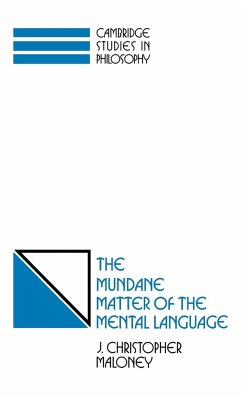
Mundane Matter of Mental Langu
Versandkostenfrei!
Versandfertig in 1-2 Wochen
119,99 €
inkl. MwSt.

PAYBACK Punkte
60 °P sammeln!
Christopher Maloney offers an explanation of the fundamental nature of thought.


Rechnungen
Bestellstatus
Retourenschein
Storno